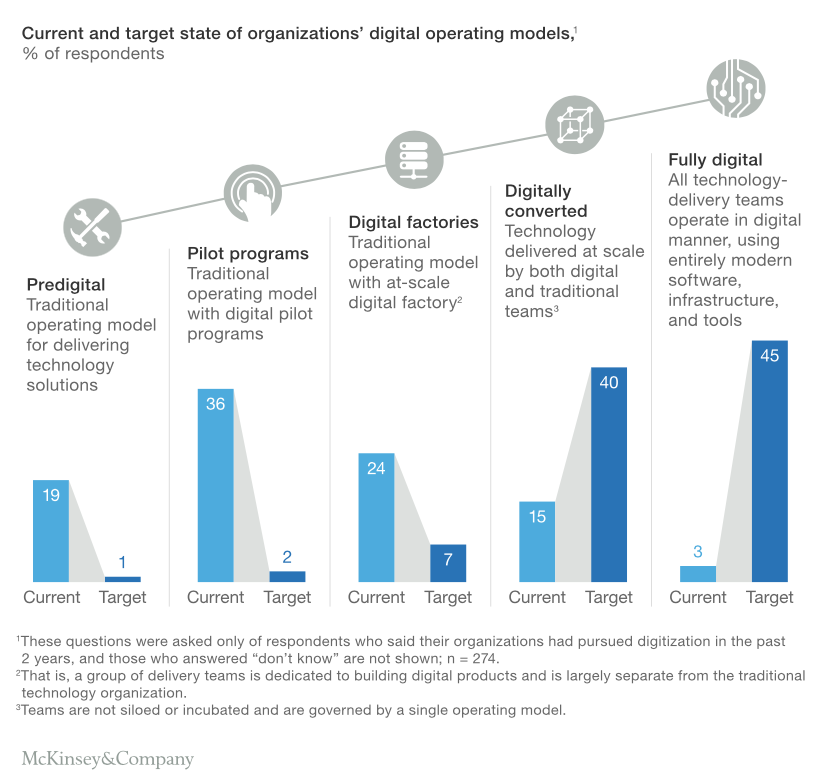
There’s no doubt, that Covid-19 is having a massive and traumatic impact on the global economy. Within a very short period, individual lives and businesses have been traumatized as well. The implications of this pandemic seem to be long-lasting and widespread and have the potential to change the way we build up our economic and financial relations.
What the World is Facing
There are several negative impacts caused by Covid-19. Supply chain disruptions, unpredicted consumer behaviors, and diminishing customer demands, and social challenges, force organizations to go through a worrying time.
A significant part of the worldwide B2B market relies on the transportation of physical goods between parties. For B2B companies selling goods and services, which are not considered essential during this period, it’s going to be difficult.
On the B2C market, different concerns come up. Many individuals shift their shopping to online platforms. If they physically go shopping, the contactless payment feature becomes a priority.
Leaders of companies are concerned about the revenues as well as introducing new methodologies and a new culture to work under extreme circumstances. Possibly the largest remote work scale of history became reality and organizations are struggling to comply with this situation.
Challenges of the New World Order
Experts expect many industries to face significant challenges. For most of the organizations, accelerating the digital transformation is the only possibility to tackle all the issues related to restrictions caused by Covid-19.
Here are some of the main problem areas:
Incomplete Digital Transformation
According to McKinsey, 79% of organizations are still in the early stages of digital transformation. Worldwide pandemic has underlined, that the business world needs to release the handbrake to apply complete and accurate policies to implement the transition to digitalization.

Handling Unstructured Data
To keep the organization running and make continuous value generation possible, solid, reliable, and integrated data governance is imperative. A clear and sharp snapshot of the enterprise can only be taken by using the results of well-organized data sources.
Security Matters
Not every organization is prepared for security issues under extreme conditions. For those organizations, digital identity management is the first concern. Not to mention, working on sensitive data another issue, while working remotely.
Getting Ready for Remote Work
A lack of remote working policy is a problem for an organization, regardless of the business line. New methods of completing tasks need to be aligned with the company culture and require a solid digital infrastructure. Not all companies have a Plan B to switch to remote working.
Mental Health and Wellness
Many co-workers are working 100% online for the first time. Working under lockdown circumstances, being concerned about the exposure of the virus, and changing daily routines add extra pressure.
Inaccurate Technology Environment
Organizations without the right digital platforms struggle to coordinate and complete vital business processes and transactions. According to Zogbt Analytics, 41% of remote teams try to coordinate their work with messengers, text messages, and individual solutions.
Unstructured Business Processes
Many companies struggle to adapt to the requirements of the new world, just because they have limited information about their processes. Serious consequences may occur in case of disruptions and the duration of recovering from a significant failure takes longer if the risk assessment has not been done yet.
How to Overcome the Crisis?
Below is an action plan to overcome the challenges elaborated by the crisis. Those implications are simple yet effective.
Speed Up Digital Transformation
If you already have a digital transformation strategy, it’s time to re-assess it. Agile methodologies trigger continuous development and innovation. Build your digital initiative with acceptable sprints in predefined periods with constant iteration. This will allow the organization to launch, learn, experiment, make corrections, and re-launch.
Discover Vital Processes
Processes of an enterprise define the way it makes business. The question about the vital processes of your organization has the highest priority. Flawless execution of these processes ensures the survival of a business. Enable process mining to discover vital processes, if necessary, and optimize them for a smooth run.
The availability of inputs and resources required to execute vital processes must be ensured too. And to avoid any risks, plans for alternate ways to execute survival processes should be made ready. Don’t forget to calibrate and redefine your KPI’s in the light of process data.
Choose the Right Software Suites
Software suites enabling easy integration, maintenance, and supporting the use of shared resources, empower teamwork, and leverage communication under unpredictable circumstances. In order to handle productivity issues in your organization, choose platforms ready for remote working, providing mobile technology options.
A No-Code BPM tool like E-Flow eliminates paperwork and enables digital transportation of information. Integrate your BPM with your transactional systems such as your ERP, CRM systems.
Master and Manage Your Data
A well structured and maintained enterprise scaled data set is essential to develop new types of value generation. Data visionaries and scientists can achieve their goals through analytics and automation, only if the required dataset is in good shape. Master your data and keep it well organized. If you don’t have the necessary skills in-house, it’s time to power up your team.
Prepare Your IT Infrastructure
Companies with higher headcount, need to strengthen their server farms to have sufficient slots for remote connection requests. This also requires a sustainable and continuous internet broadband connection. There are methods to figure out the optimal hardware and software requirements to provide a reliable, sustainable, and comfortable remote work environment.
Conclusion
Quite an old saying holds true still: Necessity is the mother of invention. A global viral crisis has made a digitalization leap of faith for companies, who were reluctant before. As the world sees the benefits of digitalization clearly, now it is time for companies from SMEs to large enterprises to quickly re-assess their digital transformation strategies and act up-on their execution.
We believe, this pandemic will force an acceleration of digital transformation efforts. It’s time to develop a customized and accurate approach for digitization. After the shock wave has been absorbed, organizations will look for innovation and build up new skills necessary for a more sustainable and efficient way of doing business. Who dares, wins.
